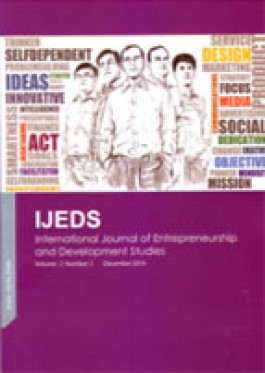
ACCEPTABILITY OF E-COMMERCE AMONG INDIAN CONSUMERS
Written by: VAIBHAV MISRA & DR. KUSHENDRA MISHRA
E-Commerce Services are widely used in different fields of Management for making payments, purchasing goods, booking tours etc. Therefore the study is conducted to find out the acceptability of E-Commerce among Indian consumers. This study also looks into other objectives such as finding out the reasons of acceptance or non-acceptance of E-Commerce technology. Questionnaire was designed keeping in mind the convenience of the respondents and was distributed to 384 respondents, the responses were received from 373 respondents. To analyze the reliability of questionnaire Cronbach’s Alpha was used in the study. Further, Factor Analysis and Regression Analysis were used in the study to identify the acceptability of E-Commerce among the Consumers. It is found that security and trust are the major reason affecting the acceptability of e-commerce among Indian consumers. The other reasons found accountable for acceptability of e-commerce are Telecommunication Infrastructure, Awareness about E-Commerce, Language and Economical Background.
APPLYING SYMBOLIC INTERACTIONISM TO CUSTOMER ENGAGEMENT IN SOCIAL MEDIA: A CONCEPTUAL MODEL
Written by: MUSFIQ MANNAN CHOUDHURY, PhD
Expansion of the internet has made evolution of new know-hows such as social media technologies as Facebook, Twitter, Google + used to interact understand customers. Such interactions with businesses leaves behind a trail of information which businesses capture to understand customers to maintain a lifetime value of firms with individuals. In this study, a conceptual model is developed adopting the work of Ashleyet. al. (2011) published in the Journal of Business Research using the symbolic interactionism theory to understand how organizations with social media presence enable to achieve customer relationship management that is, to cater to the needs of the customers to retain and nurture a profitable relationship. The study contributes to developing a holistic model for customer engagement. From the managerial point of view, it provides necessary outcomes and of customer engagement especially, trust, commitment, and loyalty towards the organization.
ONLINE SHOPPING ATTITUDE AMONG THE YOUTH: A STUDY ON UNIVERSITY STUDENTS
Written by: DEEPJYOTI CHOUDHURY & ABHIJIT DEY
Online shopping has become a new trend of shopping nowadays and is quickly becoming an important part of lifestyle. Due to wide spread internet access by people and e-commerce usage by traders, online shopping has seen a massive growth in recent years. Young people have been the majority shoppers online and thus this study finds out the attitude of youth towards online shopping. This particular paper attempted to find out whether there is any impact of five factors like internet literacy, gender, educational qualification, website usability and online product price on online shopping. The study was undertaken among the students of Assam University. The results of the study highlighted that there is a significant relationship of online shopping with gender, internet literacy, and online product price. Similarly the study also highlighted that there is no significant relationship of online shopping with education and website usability.
WOMEN ENTREPRENEURSHIP DEVELOPMENT AND ECONOMIC GROWTH IN BANGLADESH
Written by: SAMIA ISLAM
Economic development of a country is a function of a complex set of factors. Entrepreneurship is one of the essential factors in building natural wealth. The role of women entrepreneurship and its impact on women empowerment play an important part in economic growth and overall development of a society, particularly when women make half of the population of Bangladesh. This study intends to analyze the role of women entrepreneurship and the present condition or status of women entrepreneurship in our society compared to that of the men in urban and rural Bangladesh. Therefore, based on the analysis of some factors, the paper provides an idea of significant government policies and their implications with some suggestions for the improvement of women entrepreneurship in Bangladesh that can help for the rapid industrialization and economic development of the country.
ROLE OF SME LOAN IN BANGLADESH: A CASE STUDY OF BRAC BANK LIMITED, RAJSHAHI BRANCH
Written by: MD. SALAH UDDIN , MD. SHAWAN UDDIN and MD. SHAMIM HOSSAIN
In this paper attempts to draw the role of SME loan in Bangladesh, particularly the small and medium enterprises (SME) deserves special attention. Generally Small and medium enterprises play a very important role in economic growth and industrial development of a country. For Bangladesh, SME have assumed special significance for poverty diminution programs and potential contribution to the overall industrial and economic growth. The present study is confined to the area of SME loan. This paper looks at the performance of small and medium enterprises that have received loans from BRAC Bank Limited with a center of attention on employment generation. The study is based on both primary and secondary data. This research will be of potential value in accelerating the development of SME loan in Bangladesh.



